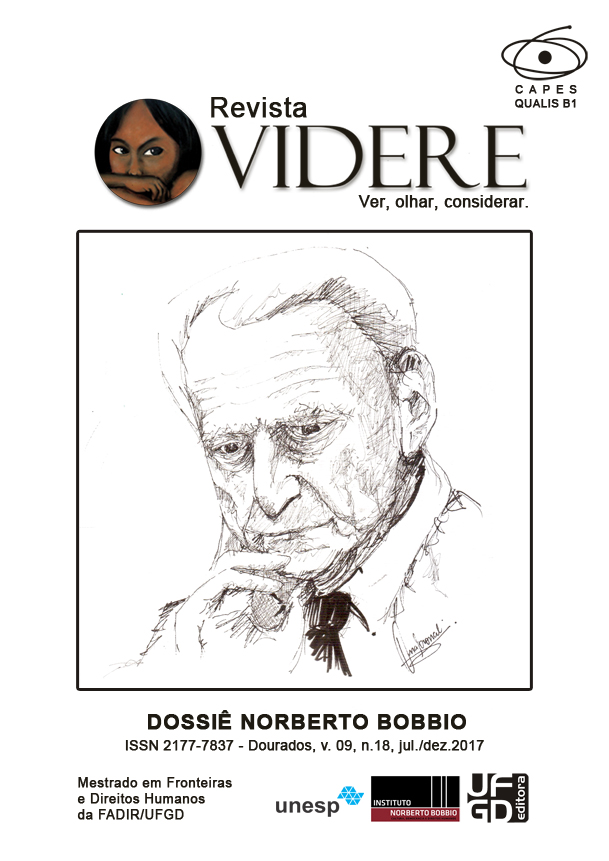O caso de Israel: a teoria do governo misto sob a perspectiva de Norberto Bobbio
DOI:
https://doi.org/10.30612/videre.v9i18.6668Palavras-chave:
Israel. Estado. Governo misto. Política. governo.Resumo
Como a teoria do governo misto, desenvolvida originalmente por clássicos greco-romanos, e relida por Norberto Bobbio se encaixa no caso de Israel, país que vive uma situação limite, entre construir uma sociedade com identidade própria e ao mesmo tempo com algum grau de pluralismo, e manter um Estado em meio a vizinhos que possuem dificuldades de relacionamento político.Downloads
Não há dados estatísticos.
Downloads
Publicado
2017-12-19
Como Citar
Metzger, F. (2017). O caso de Israel: a teoria do governo misto sob a perspectiva de Norberto Bobbio. Revista Videre, 9(18), 109–128. https://doi.org/10.30612/videre.v9i18.6668
Edição
Seção
Artigos
Licença
Os autores devem aceitar as normas de publicação ao submeterem a revista, bem como, concordam com os seguintes termos:
(a) O Conselho Editorial se reserva ao direito de efetuar, nos originais, alterações da Língua portuguesa para se manter o padrão culto da língua, respeitando, porém, o estilo dos autores.
(b) Autores mantém os direitos autorais e concedem à revista o direito de primeira publicação, com o trabalho simultaneamente licenciado sob a Atribuição-NãoComercial-CompartilhaIgual 3.0 Brasil (CC BY-NC-SA 3.0 BR) que permite: Compartilhar — copiar e redistribuir o material em qualquer suporte ou formato e Adaptar — remixar, transformar, e criar a partir do material. A CC BY-NC-SA 3.0 BR considera os termos seguintes:
- Atribuição — Você deve dar o crédito apropriado, prover um link para a licença e indicar se mudanças foram feitas. Você deve fazê-lo em qualquer circunstância razoável, mas de nenhuma maneira que sugira que o licenciante apoia você ou o seu uso.
- NãoComercial — Você não pode usar o material para fins comerciais.
- CompartilhaIgual — Se você remixar, transformar, ou criar a partir do material, tem de distribuir as suas contribuições sob a mesma licença que o original.
- Sem restrições adicionais — Você não pode aplicar termos jurídicos ou medidas de caráter tecnológico que restrinjam legalmente outros de fazerem algo que a licença permita.
(c) Após a publicação, os autores têm permissão e são estimulados a publicar e distribuir seu trabalho online – em repositórios institucionais, página pessoal, rede social ou demais sites de divulgação científica, desde que a publicação não tenha fins comerciais.



















